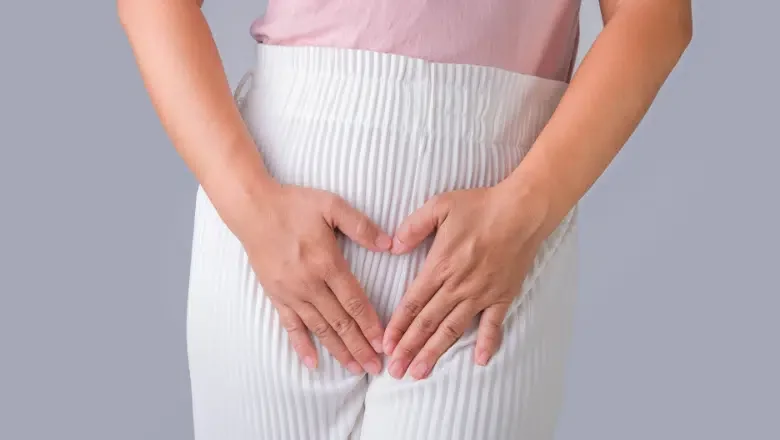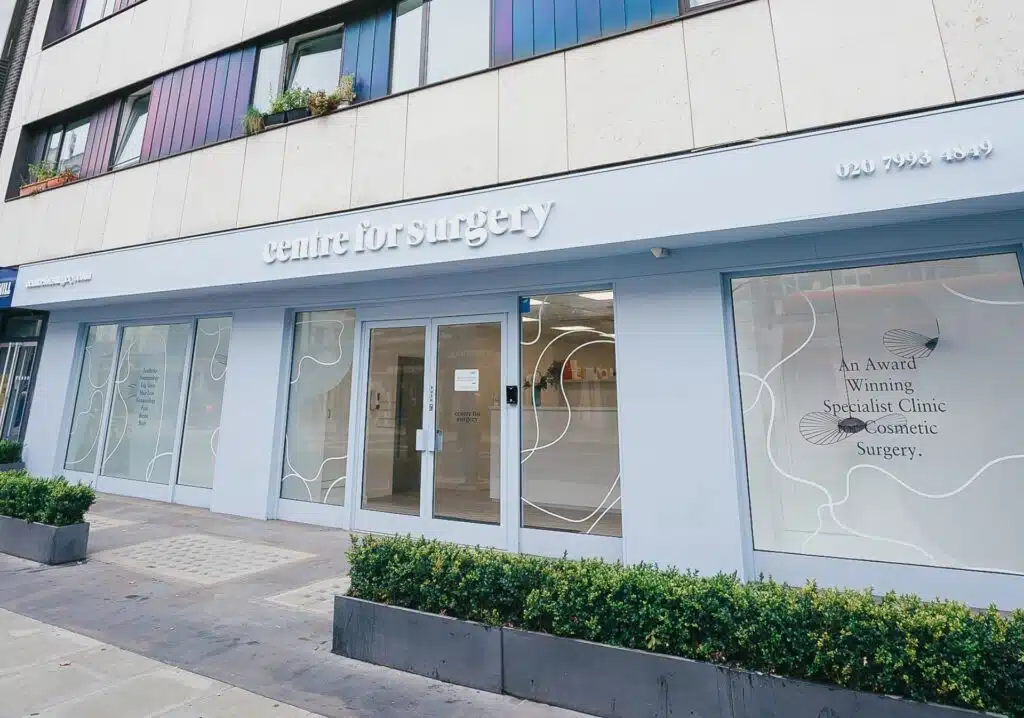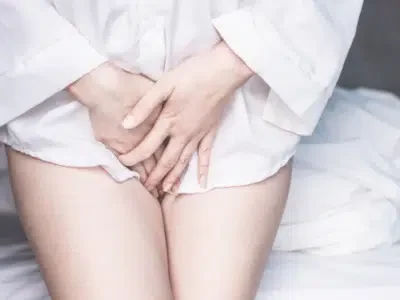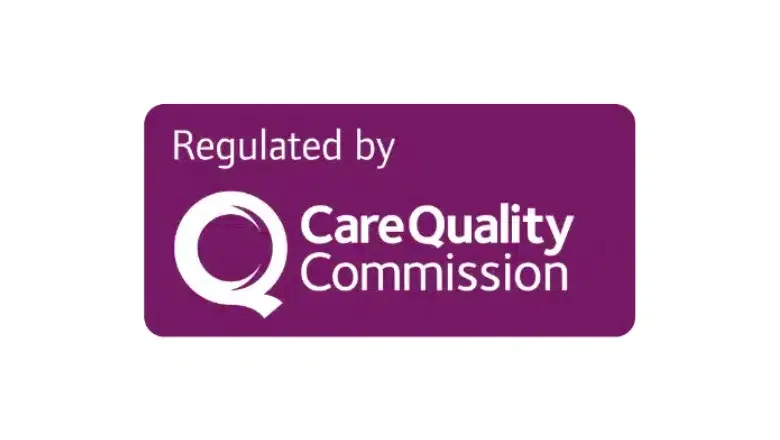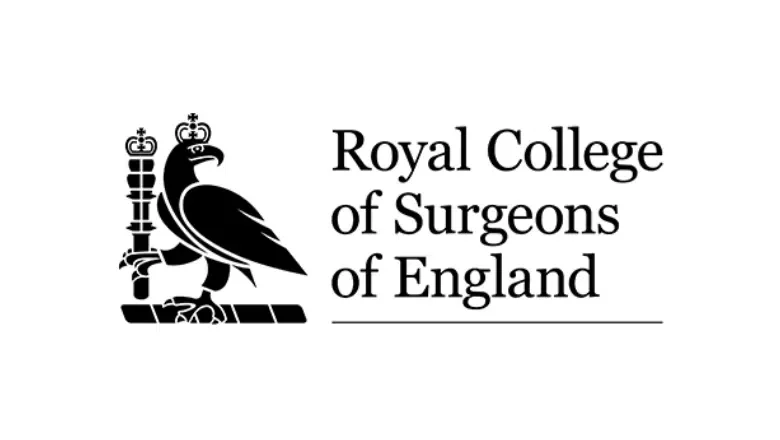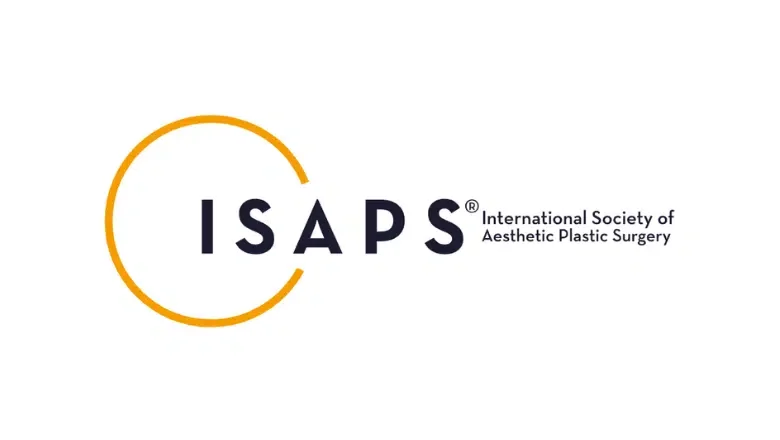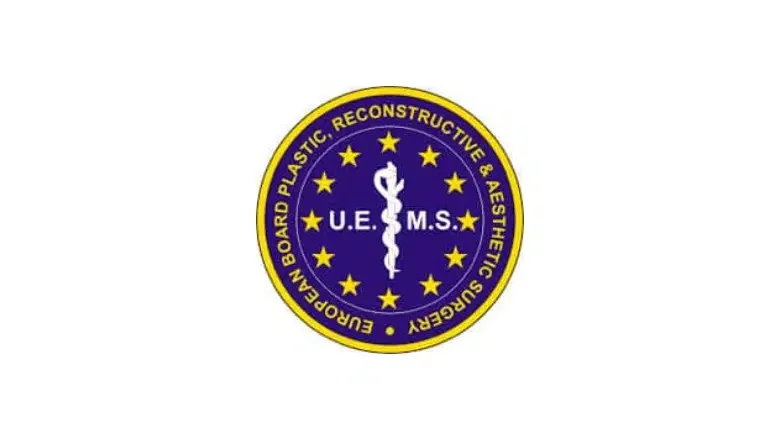How to Minimise Bruising and Swelling After Labiaplasty Surgery
Labiaplasty is a type of surgical operation that changes the size or shape of the labia minora or labia majora. These are the external folds of skin around a woman’s private parts. People usually choose to have this surgery for either medical benefits or to improve how they look. While labiaplasty is generally safe, it’s pretty normal to have some swelling and bruising afterwards. So, if you’re thinking about having this surgery, or if you’ve just had it done, you’re likely asking yourself, “What can I do to lessen the swelling and bruising after my labiaplasty?”
RELATED: Recovery after Labiaplasty – Top Tips after Labia Reduction Surgery
We have a team of highly skilled Specialist Plastic Surgeons at Centre for Surgery in London. Our aim is to make your recovery as easy and comfy as possible. That’s why our surgeons offer detailed aftercare plans that are specially created to meet your own unique needs.
RELATED: Labiaplasty Before & After Photos
Understanding the Usual Symptoms You Might Face After Labiaplasty Surgery
If you’ve recently had a labiaplasty, you might be experiencing various symptoms as your body kicks off the healing journey. Knowing what these common symptoms are can help you better handle your recovery and understand when it’s time to seek medical help. Here’s a breakdown of what you could go through:
Swelling
- When You’ll Notice It: Usually within the first 48 to 72 hours after the operation.
- Where It Can Spread: The swelling may not just be limited to the labia; it can also affect nearby areas like the mons pubis and even your upper thigh.
- How to Manage: Using ice packs and keeping the area elevated are commonly advised to help reduce swelling.
Bruising
- When You’ll Notice It: It often shows up, along with swelling.
- What It Looks Like: The colour can range from a light blue to a dark purple.
- How Long It Lasts: Bruising generally starts to fade away after the first week.
Pain and Discomfort
- Intensity: The pain is usually mild to moderate in nature.
- How to Manage: Over-the-counter painkillers or specific prescriptions from your plastic surgeon or anaesthetist can help control the pain.
- When It Gets Better: The discomfort typically lessens noticeably after the first few days.
Itching
- What It Indicates: Itching is generally a sign that the surgical area is healing.
- Caution: While it can be bothersome, resist the urge to scratch the area.
- How to Manage: Using cool compresses can help ease the itchiness.
Redness and Warmth
- What It Indicates: The surgical area might look red and feel warm, which is usually a part of the body’s natural healing mechanism.
- When to Be Concerned: If you notice excessive redness and warmth, these could be signs of an infection. In such cases, it’s best to consult your surgeon.
Bleeding
- When You’ll Notice It: Some minor bleeding or spotting is quite normal, particularly in the first 24 to 48 hours.
- How to Manage: Using sanitary pads is usually advised.
- When to Be Concerned: Heavy bleeding is not normal and requires immediate medical intervention.
Numbness or Altered Sensation
- What It Indicates: You may experience temporary numbness or changes in feeling in the affected area.
- When to Be Concerned: If the numbness or altered sensation persists for a longer period, consult your surgeon for advice.
How Long to Expect Swelling to Last After Labiaplasty: A Guide to Recovery Timeline
Understanding the timeline for swelling after a labiaplasty is essential for setting practical expectations for your recovery. Swelling is a typical side effect of the surgery and can vary depending on several factors such as individual healing rates, surgical techniques used, and your general health. Here’s a general guide to what you can expect at different stages of your recovery:
Immediate Post-Operative Period:
- Swelling Levels: Swelling is most intense during the initial 48 to 72 hours following your surgery.
- What You Might Feel: You’ll probably notice significant puffiness and a sense of tightness in the surgical area.
First Week after Surgery:
- Swelling Levels: The swelling will start to diminish, although it will still be noticeable.
- Best Practices: It’s crucial to adhere to your surgeon’s guidance, which often includes using ice packs and elevating the surgical area, to help speed up the reduction of swelling.
Two to Three Weeks Post-Surgery:
- Swelling Levels: By this stage, you should notice a significant reduction in swelling.
- What’s Normal: Some minor swelling may still be present, which is entirely normal and to be expected.
One Month and Beyond:
- Swelling Levels: Most patients report that the majority of the swelling has gone down by this point.
- What’s Left: Any residual swelling is usually minimal and gradually lessens over the next few months.
Everyone’s body reacts differently, and your healing process may not follow this exact timeline. If you have concerns about swelling or any other symptoms during your recovery, it’s always best to consult your surgeon for personalised advice.
Factors That Can Influence How Long Swelling Lasts After Labiaplasty
Understanding the factors affecting the swelling duration after labiaplasty can help you better prepare for your recovery. Several elements come into play, and being aware of them is useful. Here’s a rundown of some key factors:
Your Body’s Natural Healing Process
- What it Means: Every individual’s body has its own unique way of responding to surgery, which means healing times can differ from person to person.
Quality of Surgical Technique
- What it Means: The expertise of your Plastic Surgeon is crucial. A well-performed surgery can minimise complications, including the extent and duration of swelling.
Adherence to Post-Operative Care
- What it Means: Following your surgeon’s guidelines for aftercare can substantially impact your recovery. The more closely you adhere to these instructions, the quicker you’ll likely see a reduction in swelling.
Overall Health
- What it Means: Your general health and well-being can also affect how quickly you recover. A healthy body is generally more resilient and may heal more quickly.
Pre-existing Medical Conditions
- What it Means: Certain medical conditions, like diabetes or issues with blood circulation, could potentially prolong the healing process, including the duration of the swelling.
Swelling and Bruising Timeline After Labiaplasty
Understanding the pattern of swelling and bruising after a labiaplasty procedure can aid you in setting realistic expectations and crafting an effective recovery plan. Below is an exhaustive outline, offering insights into what you may encounter at various intervals following your surgery:
First 48 to 72 Hours After Surgery
- Swelling: The swelling usually reaches its peak within these initial hours, causing the surgical area to look puffy and feel quite tight.
- Bruising: This is when bruising is most visible, manifesting in hues varying from blue to purple.
- Management: Ice packs and elevating the affected area are highly advised to help control swelling and bruising effectively.
The First Week Following Surgery
- Swelling: The swelling will begin to subside, but it’s expected to still be quite pronounced.
- Bruising: The colours of the bruises will start transitioning to lighter shades, such as yellow or green.
- Management: You should persist with the use of ice packs and might contemplate taking over-the-counter remedies like Arnica, which are reputed to assist with bruising reduction.
The Second Week After the Operation
- Swelling: By the end of this week, you should observe a marked reduction in swelling, which is a positive sign of healing.
- Bruising: Any remaining bruises will likely have faded noticeably or might have disappeared altogether.
- Management: Maintain a clean and dry surgical area, whilst strictly adhering to your surgeon’s post-operative care guidelines, such as those provided by Dr Carmen.
From the Third Week to One Month Post-Surgery
- Swelling: Any residual swelling should be minor at this point and will continue to lessen gradually.
- Bruising: At this stage, bruising should most likely be a thing of the past.
- Management: With your surgeon’s permission, you can start incorporating gentle physical exercises to help enhance blood circulation, thereby expediting the healing process.
Beyond the One-Month Mark
- Swelling: At this stage, any remaining swelling should be almost negligible, and you might only experience minor puffiness that will resolve itself over the upcoming months.
- Bruising: No signs of bruising should be present.
- Management: Continue to closely monitor the surgical site and make it a point to attend all subsequent follow-up appointments at the Centre for Surgery for thorough assessments and to address any concerns or need for further interventions.
Top Tips for Reducing Swelling After Labiaplasty Surgery
Effectively managing swelling post-labiaplasty is a crucial component of your overall recovery. Not only does it enhance your comfort levels, but it also significantly speeds up the healing process. Here are some detailed, step-by-step recommendations:
Use Ice Packs
- How to Do It: Apply ice packs directly to the surgical site for the first 48 to 72 hours.
- Additional Tips: Always wrap the ice pack in a cloth to avoid frostbite. Use it in 20-minute intervals, allowing breaks in between each application.
Elevate the Surgical Area
- How to Do It: Elevating the pelvis can be extremely beneficial in minimising swelling.
- Additional Tips: Use pillows to prop up the area while lying down, and try to maintain this elevated position as much as possible during the initial stages of your recovery.
Consider Over-the-Counter Medications
- How to Do It: Anti-inflammatory over-the-counter medications can be helpful.
- Additional Tips: Always consult with your surgeon before incorporating any new medications into your recovery regimen.
Abstain from Sexual Intercourse
- How to Do It: Sexual activity can intensify swelling and hinder the healing process.
- Additional Tips: Generally, it’s advised to abstain for a minimum of four to six weeks or as directed by your surgeon.
Avoid Waxing or Shaving
- How to Do It: Hold off on any hair removal methods like waxing or shaving.
- Additional Tips: Wait for your surgeon’s approval, usually in the form of an all-clear from Dr Carmen, before resuming these activities.
Skip Baths
- How to Do It: Avoid soaking in a bath as it can introduce bacteria to the surgical area and exacerbate swelling.
- Additional Tips: Opt for showers and make sure to keep the surgical area as dry as possible.
Opt for Loose, Comfortable Clothing
- How to Do It: Wear loose and breathable clothing to prevent any restriction in blood flow, which can contribute to swelling.
- Additional Tips: Loose-fitting trousers and underwear made from breathable fabric are ideal choices.
Maintain a Nutritious Diet
- How to Do It: Consume a diet rich in vitamins and minerals.
- Additional Tips: Foods such as pineapples and berries have natural anti-inflammatory properties that can aid in quicker healing.
Stay Hydrated
- How to Do It: Drink plenty of water to help flush out toxins and consequently reduce swelling.
- Additional Tips: Steer clear of beverages that can dehydrate you, such as coffee and alcoholic drinks.
Gentle Exercise
- How to Do It: Light walking can be beneficial for improving blood circulation, which can help with reducing swelling.
- Additional Tips: Always consult with your surgeon, perhaps Dr Carmen, before beginning any form of exercise after your surgery.
Following these tips diligently can go a long way in ensuring a smoother and quicker recovery post-labiaplasty. Always consult your surgeon for tailored advice that best suits your needs.
RELATED: How to Reduce Labiaplasty Swelling
Physical Activities and Exercises After Labiaplasty
If you’ve recently undergone a labiaplasty, you might be eager to return to your regular physical routine. However, it’s crucial to allow your body ample time to heal. Interestingly, some forms of gentle movement could aid in your recovery. Here’s a detailed guide on what to do and what to avoid.
RELATED: Exercise After Labiaplasty – Top Tips
Gentle Movements to Consider:
Walking
- Benefit: Light walking can encourage better blood circulation, which is essential for both healing and reducing postoperative swelling.
- Additional Tip: Start with short distances and gradually extend as you feel more comfortable, always consulting your surgeon for personalised advice.
Stretching
- Benefit: Gentle stretching can relieve stiffness and make you feel more comfortable.
- Additional Tip: Stick to stretches that don’t put pressure on the surgical area, like upper body stretches.
Breathing Exercises
- Benefit: Deep breathing can help relax your muscles and may even lessen pain.
- Additional Tip: Try inhaling deeply through your nose and exhaling through your mouth in a controlled manner.
Arm Raises
- Benefit: If you find yourself lying down for extended periods, arm raises can help keep your upper body somewhat active.
- Additional Tip: Perform these gently and gradually to avoid strain.
Activities to Avoid:
High-Impact Exercises
- Why Avoid: Activities such as running, jumping, or aerobics can be too strenuous on the pelvic area.
- Additional Tip: Wait until your surgeon gives you the all-clear before resuming these kinds of activities.
Weight Lifting
- Why Avoid: Lifting heavy objects can put undue strain on your pelvic region, impeding healing.
- Additional Tip: Consult your surgeon on when it might be safe to reintroduce weight lifting into your routine.
Cycling
- Why Avoid: The pressure exerted by a bike seat can negatively affect the surgical area.
- Additional Tip: As always, consult your surgeon for specific advice on when cycling might be appropriate for you.
Swimming
- Why Avoid: Even though swimming appears to be a low-impact exercise, pool water can introduce bacteria to the surgical site.
- Additional Tip: Wait until your surgical area is fully healed and consult your surgeon before diving back into the pool.
Yoga and Pilates
- Why Avoid: Despite being low-impact activities, many poses in yoga and Pilates can put pressure on the pelvic area.
- Additional Tip: Hold off until you’ve been fully cleared by your surgeon to engage in these types of exercise.
Sexual Activity
- Why Avoid: As previously mentioned, sexual intercourse can exacerbate swelling and slow down the healing process.
- Additional Tip: Typically, it’s advised to abstain for at least four to six weeks or as directed by your surgeon.
Managing Itching After Labiaplasty
Itching following a labiaplasty is an expected, albeit bothersome, symptom. While generally indicative of the healing process, the sensation can be quite uncomfortable. Below are some strategic ways to effectively manage itching post-surgery:
Opt for Loose, Breathable Clothing
- Why: Tight or synthetic materials can worsen the itchiness by causing irritation and retaining moisture.
- Tips: Choose loose garments that are made of natural fibres like cotton, which are breathable and gentle on the skin.
Maintain a Dry Surgical Area
- Why: Excess moisture can further irritate the surgical site, amplifying the itchiness.
- Tips: After showering, ensure you gently pat the area dry with a clean, soft towel. Avoid vigorous rubbing, which can exacerbate irritation.
Avoid Scratching at All Costs
- Why: Scratching can introduce bacteria to the surgical site, potentially causing an infection and delaying the healing process.
- Tips: If the urge to scratch is overwhelming, consider wearing gloves to bed or keeping your nails trimmed short. This minimises the risk of breaking the skin and causing an infection.
Use Distraction Techniques
- Why: Diverting your attention can sometimes be an effective way to mitigate the discomfort of itching.
- Tips: Engage in activities that keep your hands busy and require your focus, such as knitting, drawing, or solving a puzzle.
Consider Natural Remedies
- Why: Some individuals find relief from itchiness through natural methods, such as the application of aloe vera gel or chamomile tea compresses.
- Tips: Always consult your surgeon prior to applying any natural remedies to ensure that they are appropriate and won’t interfere with your healing process.
Other Options to Consider
- Topical Creams: Some over-the-counter hydrocortisone creams may provide temporary relief from itching. However, consult your surgeon before applying anything to the surgical site.
- Antihistamines: Non-prescription antihistamines may reduce itching but can cause drowsiness. As with all medications, speak with your surgeon before taking any antihistamines.
Frequently Asked Questions about Post-Operative Swelling and Bruising in Labiaplasty
How Long Should I Anticipate Swelling to Persist Following Labiaplasty Surgery?
Swelling is a prevalent occurrence after undergoing labiaplasty. However, the duration can differ substantially among individuals. In the initial 48 to 72 hours post-surgery, you may experience pronounced swelling, making the surgical region appear puffy and uncomfortable. As you move into the first week post-surgery, the puffiness typically recurs, although it will likely still be visible. By the conclusion of the second week, most individuals observe a significant reduction in swelling. By the end of the first month, swelling has largely diminished for most patients, although a minor amount may linger for several months thereafter.
What Strategies Can Accelerate the Reduction of Swelling After Labiaplasty?
Effective management of post-operative swelling involves several approaches. Applying cold compresses to the affected area can be helpful in the immediate 48 to 72 hours following your surgery. Elevating the pelvic region is another tactic that can assist in minimising swelling. While over-the-counter anti-inflammatory medicines could be an alternative, it is imperative to consult with your plastic surgeon before introducing any new medication. Additionally, adhering to a balanced, nutritious diet and maintaining adequate hydration can contribute to swifter healing and lessening swelling.
Is it Normal to Experience Bruising, and What is its Typical Duration?
Bruising often accompanies swelling as a routine post-operative symptom. During the first 48 to 72 hours after your procedure, you can expect the bruising to be most conspicuous, displaying shades ranging from dark blue to purple. As you transition into the week following your surgery, the bruises should begin to lighten, changing to softer shades such as yellow or green. For most individuals, any remnants of bruising should vanish by the end of the second or third week post-surgery.
Are There Specific Medicines Tailored for Bruising Mitigation?
Yes, many find over-the-counter solutions like Arnica beneficial for reducing bruising. Some individuals also turn to natural therapies, including herbal supplements and topical applications, although it’s crucial to consult your surgeon before using any of these.
When Should I Consult a Medical Professional About Post-Surgery Swelling and Bruising?
While post-operative swelling and bruising are generally not alarming symptoms, certain situations warrant immediate medical attention. If your swelling is not receding as expected after the initial week or is coupled with severe or persistent pain, it could signify an underlying issue such as an infection. Likewise, if the bruising is associated with excessive bleeding, it is crucial to consult your surgeon promptly.
RELATED: Labiaplasty FAQs – Q&A about Labia Reduction
Labiaplasty in London – Why Choose Centre for Surgery for Your Procedure
Regarding labiaplasty, the importance of selecting a reputable and experienced clinic cannot be overstated. Centre for Surgery stands out as a specialist in plastic surgery, offering a comprehensive range of services designed to meet your needs. Here are the reasons why Centre for Surgery in London is your best choice for labiaplasty.
Expert Team of Plastic Surgeons
Our team is composed of skilled plastic surgeons who are experts in the field. They employ state-of-the-art techniques to ensure your surgery meets the highest standards.
Patient-Centric Care
From your first consultation to post-operative care, our focus is on you. We provide tailored solutions designed to meet your specific needs and circumstances.
Cutting-Edge Facilities
Our Baker Street clinic boasts advanced surgical facilities, ensuring that your procedure is performed under the safest conditions.
Transparent Finance Options
We understand that surgery is a significant investment, so we offer various finance options, including 0% APR with Chrysalis Finance, to make the process more manageable for you.
For more details, visit our About Us page and Finance Options.
Patient Testimonials
- Sophia: “My experience at Centre for Surgery was excellent. The staff were incredibly supportive, and the surgeon was attentive and professional. I couldn’t be happier with the results.”
- Michael: “From the moment I stepped into the clinic, I felt at ease. The level of care and attention to detail was second to none. Highly recommended!”
- Emma: “The post-operative care was exceptional. I felt well-informed and supported throughout the entire process. My confidence has been restored thanks to Centre for Surgery.”
Additional Information
For further insights and helpful tips, check out our Plastic Surgery Blog. You may also find answers to common questions on our Clinic FAQs page.
Book Your Consultation Today
We invite you to take the first step towards a more confident you. To book a consultation or to learn more about labiaplasty at Centre for Surgery, please get in touch with us through the following:
- Phone: 0207 993 4849
- Email: contact@centreforsurgery.com
- Address: 95-97 Baker Street, London W1U 6RN
For more details on our Baker Street Clinic, visit the Baker Street Clinic Link.
We look forward to meeting you and discussing how we can assist you on your journey to enhanced well-being.
